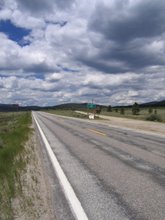
January 21, 2009
The theme this week is dreams, and it’s a particularly appropriate theme for this moment in history. On Monday, we honored the legacy of Dr. Martin Luther King, and the effect that his dream and determination had on our nation. The diverse crowds gathered on the Mall Monday & Tuesday demonstrated, in Obama’s words, the reality of the “dream of a King”, the dream that was Dr. King’s dream, the dream of the King of Kings, Jesus: the dream that we would be divided no more.
Often when we’re hopeful, we talk about dreams and the power they have to change the world, for surely we have seen that! And often when we are cynical or despairing, we warn of fairytale flights of fancy—the foolish dreams that have no chance of fruition, but need to be reigned in.
We use the term “dreams” metaphorically, to describe hopes, aspirations, visions for the future. We know deep in our souls that God can breathe into our dreams, that God can show us a future that is-not-yet.
The ancients too thought that God spoke to us in dreams, and the book of Genesis tells the story of that dreamer and dream-interpreter, Joseph (of the many colored coat) who saw a warning of famine in the dreams of the Pharaoh—danger, but also a way out
Today I want to talk about the danger of dreams.
When God inspires our dreams & dwells in them, we can receive the courage to go a different path. This past week, I traveled through the South & spent an afternoon in the Civil Rights museum in Memphis, Tennessee. In the stories of the marchers, freedom riders, the organizers, and the preachers, the compelling power of a God-given dream came through.
But ever present was the danger that came along with these dreams of dignity & justice. Dreaming of – and working for!—a different world can scare what the theologian Walter Wink & the Apostle Paul call “The Powers that Be”. Because dreams are by definition not-yet reality, those who like the world the way it is are threatened by God-given dreams.
I saw this too. The Memphis Civil Rights museum was attached to the Lorraine Motel, where the powers that be struck out and tried to snuff out the dream of God’s justice—the Lorraine Motel where Dr. King was murdered by an assassin’s bullet.
Big dreams can bring big violence. But even the smaller, more daily dreams incite smaller, more daily resistance. Some of use dream of raising a family, yet struggle to afford it in a world not set up for work and parenting. Some of us dream of good health and a restoration to community, but are left in pain or exhausted from just leaving the house. Or dream of a good job, but struggle to find work we can believe in, or any work at all. Some of us dream that gender won’t limit what we can do or who we can love, but face prejudice from friends, employers and even fear violence.
What dreams do you struggle to live? What dangers have you faced?
But, if there is a danger in following a dream, there is danger in ignoring a dream given by God. In the sacred text for today, “Harlem”, Langston Hughes writes of “a dream deferred.” When dreams are blocked, deferred—they rot, they drag down, the pressure builds.
It is not only external powers that bring the danger of deferred dreams, but we ourselves. If a dream is burning inside us and we do not follow it, that dream can poison our souls. The examples are trite, but oh so true: someone stuck in the wrong career, ignoring God’s vocation; someone stuck in the closet, ignoring his true self.
Although God-inspired dreams point the way to a bright future, they are perilous. They bring danger if we live them and danger in equal measure if we do not.
And so, while the way of your dreams may be dark, rough & rocky, remember that but despite even murder, Martin Luther King’s dream lived on. Despite even murder, Jesus’ dream lived on and brought us together, here, today.
Amen.
